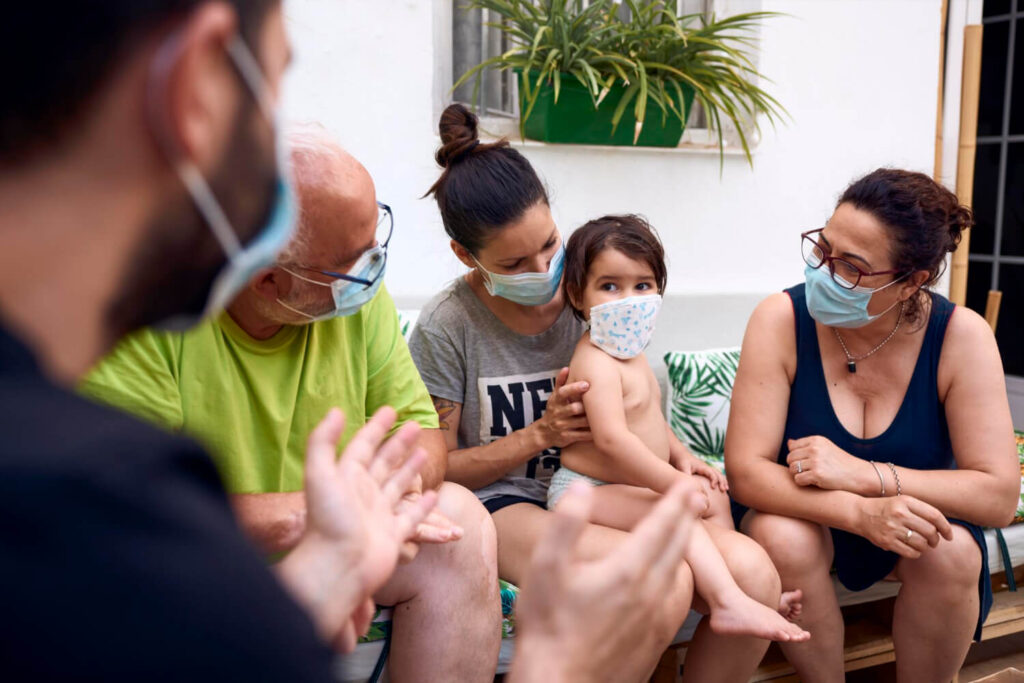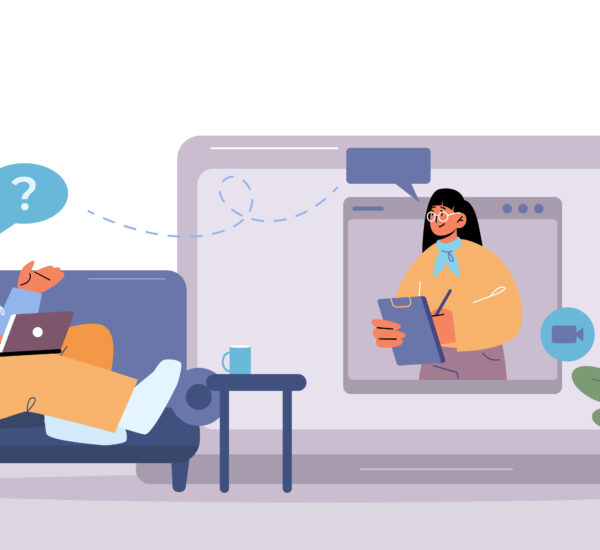In today’s society, community mental health treatment options play a vital role in addressing the mental well-being of individuals. The availability and effectiveness of such treatments have significantly improved over the years, making them an essential part of the healthcare system.
In this article, we will dive into community mental health treatment, focusing on effective options patients can use for mental healing. At the same time, discover how each method helps patients to receive the support they need.
Let’s begin!
Understanding Community Mental Health

Community mental health refers to the provision of mental health services and support in community settings, outside of psychiatric hospitals and mental hospitals. By offering services in familiar community settings such as local clinics, schools, or community centers, individuals are more likely to seek help and engage in treatment. This approach helps reduce the stigma often associated with mental health issues and encourages a sense of belonging and support within the community.
Also, it aims to promote the mental well-being of individuals, prevent mental illnesses, and provide treatment and support to those experiencing mental health difficulties. These quality services focus on delivering care in a person-centered, holistic, and recovery-oriented approach.
Patients can expect various services and may include the following:
- counseling
- therapy
- medication management
- crisis intervention
- case management
- rehabilitation
- support groups.
Furthermore, community mental health initiatives often involve collaboration among professionals, including psychologists, social workers, psychiatrists, and peer support specialists. This multidisciplinary approach ensures that individuals receive comprehensive and personalized care that addresses their unique needs for managing mental health problems.
Different Types of Community Mental Health Treatments

As mentioned, community mental health treatments commonly encompass various quality services for patients with severe mental illness. Patients can rely on these community mental health care systems throughout their mental healing journey.
Here’s what you can expect from the different types of community mental health treatments available:
Psychotherapy in Community Settings
Psychotherapy, also known as talk therapy, is a core treatment in community mental health. It involves working with a mental health professional to explore thoughts, emotions, and behaviors affecting mental well-being. Through various therapeutic approaches, individuals can gain insight, develop coping skills, and improve their overall quality of life.
Furthermore, psychotherapy in community settings often emphasizes creating a safe and non-judgmental space for individuals to express themselves freely. This therapeutic relationship fosters trust and collaboration between the individual and the therapist, leading to effective exploration and resolution of psychological challenges.
Some of the effective psychotherapy services are as follows:
- cognitive-behavioral therapy
- dialectical behavior therapy
- psychodynamic therapy
Medication as Community Mental Health Treatment
In community mental health settings, healthcare providers can prescribe and monitor the use of psychiatric medications. Medication management involves regular assessments, monitoring for side effects, adjusting dosages, and ensuring optimal medication adherence to achieve overall stability of mental well-being.
In addition to prescribing medications, healthcare providers in community mental health settings also educate individuals about their medications. This education includes information about potential side effects, expected outcomes, and the importance of medication compliance for long-term mental wellness.
Supportive Services
Supportive services are essential components of community mental health treatment. These services encompass supportive interventions, including case management, housing assistance, vocational training, peer support, and social rehabilitation programs. They aim to support various aspects of an individual’s life, promoting recovery, independence, and social integration.
Moreover, supportive services in community mental health settings are tailored to meet the diverse needs of individuals with mental health conditions. By addressing social determinants of health, such as housing instability or unemployment, these services contribute to holistic and sustainable recovery outcomes for individuals seeking mental health support.
Benefits of Community Mental Health Treatment

While seeking help from a doctor in the hospital is the initial decision of patients with mental health conditions, considering community mental health treatment can also be a great choice. There are various reasons why people can rely on this program in their community. Not only can it provide relief from the heavy emotions, but it is also more accessible.
Let’s discover below how people can benefit from utilizing community mental health treatment for their well-being.
Accessibility and Affordability
Community mental health treatment is designed to be accessible and affordable for individuals from diverse backgrounds. Services are often provided on an outpatient basis, allowing individuals to receive care without disrupting their daily lives. Moreover, community mental health centers are strategically located in neighborhoods and communities to ensure access for those in need.
On the other hand, mental health programs in the mental health communities are dedicated to helping patients in need. These programs are commonly government-funded or managed by the private sector, ensuring help is available. Thus, removing access barriers, which allows patients to receive quality care services.
Comprehensive Care
Meanwhile, another significant advantage of community mental health treatment is its focus on providing comprehensive care. Rather than solely addressing the symptoms of mental illness, these services take a holistic approach, considering the individual as a whole. This means addressing not only mental health concerns but also the social, emotional, and physical factors that can contribute to an individual’s well-being.
Furthermore, community mental health providers often collaborate with other healthcare professionals, such as primary care physicians, social workers, and occupational therapists, to ensure a multidisciplinary approach to treatment. This collaborative effort allows for a more integrated and personalized care plan, tailored to meet the unique needs of each individual. By addressing various aspects of a person’s life, community mental health services strive to promote long-term wellness and stability.
Social Support and Inclusion
Community mental health treatment emphasizes the importance of social support and inclusion in recovery and overall mental well-being. Through support groups, peer support programs, and community-based activities, individuals can connect with others who have similar experiences, reducing feelings of isolation and building a supportive network. These social connections are invaluable in promoting resilience and fostering a sense of belonging.
In addition to formal support programs, community mental health centers often organize events and initiatives that celebrate diversity and promote inclusivity. By creating a welcoming and accepting environment, these centers empower individuals to embrace their identities and feel valued within the community. This sense of belonging not only enhances self-esteem but also encourages individuals to actively engage in their recovery journey, knowing that they are part of a compassionate and understanding community.
Challenges in Community Mental Health Treatment
Stigma and Discrimination
Despite significant progress in reducing mental health stigma, it remains a substantial barrier to community mental health treatment. Stigmatizing attitudes and discriminatory behaviors can prevent individuals from seeking help or fully engaging in treatment, leading to worsened mental health outcomes. Efforts to combat stigma and promote mental health awareness are crucial in creating an environment that supports and embraces individuals with mental health challenges.
Funding and Resource Limitations
Community mental health treatment often faces challenges related to funding and resource limitations. Insufficient funding can result in a lack of available services, long wait times, and limited access to specialized care. Additionally, shortages of mental health professionals, particularly in rural and underserved areas, further hinder the delivery of comprehensive and timely treatments. Adequate investment and resource allocation are necessary to address these constraints and ensure high-quality care for all individuals.
Conclusion
Effective community mental health treatment options are vital in promoting mental well-being. Utilizing these community services as early intervention can help patients and their family members feel more at ease about dealing with severe mental health conditions. Furthermore, public health is upheld and recognized when people recognize the benefits of using community mental health treatment options.
If you are having a hard time managing your mental health condition, it is ideal to know what options to utilize for mental healing. Patients can visit their local health centers to discover quality care services that may help with mental health management.
Community Mental Health Quiz
Test your knowledge about community mental health treatment options
What is a key benefit of providing mental health services in community settings rather than only in psychiatric hospitals?
Which professionals typically collaborate in community mental health initiatives?
What is psychotherapy, also known as talk therapy, primarily used for in community mental health?
What types of services are typically provided in community mental health outpatient settings?
Why is the multidisciplinary approach important in community mental health care?



